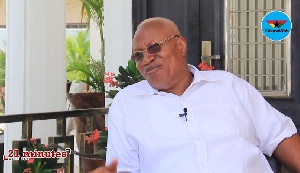Leading member of the National Democratic Congress (NDC) and Presidential hopeful, Professor Joshua Alabi has affirmed that the NDC did not have a compelling message during the 2016 election period.
Professor Alabi, who is aspiring to be the flagbearer of the NDC, held the assertion that the numerous praises about the various infrastructural exploits attained by the NDC were not enough to woo majority of Ghanaians to vote for the NDC.
The Presidential hopeful believed that the NDC was voted out of office because the message preached by the Mahama administration did not address the pressing needs of the people. According to him, the NDC was too focused on priding itself with the infrastructural successes it chalked, forgetting that the populace had other needs to be attended to.
“Our message was not right at all. Our message was very simple, we did a lot of infrastructure. Yes they were there. It is like some few years ago when the needs of the people in the rural areas was electricity (but) now it is no more their need. It has shifted. So when you go and you tell them that some few years ago you gave them electricity to vote for you, they will look at you and laugh because it is no more their need”, he said.
Professor Alabi added that the NDC was voted out of office because the people did not accept the party’s message. He argued that though the Mahama-led administration did its best, the people did not believe that those exploits were good enough to deserve a second term.
“The people didn’t accept what you did so they voted us out. The people believe that we didn’t deliver. That is what they believe. Why did they vote us out? For me, he (John Mahama) did his best. But we have to go to the people to tell us whether collectively we have done well. We did a lot of things and then when we went to tell them what we have done, we thought that based on that they will vote for us”, he opined.
Prof Alabi was the Member of Parliament for the Krowor Constituency in the Greater Accra region from 1997 to 2001. He was a member of the Business Committee of Parliament as well as a member of the Parliamentary select Committee on Food and Agriculture during that period.
General News of Monday, 23 April 2018
Source: www.ghanaweb.com

















